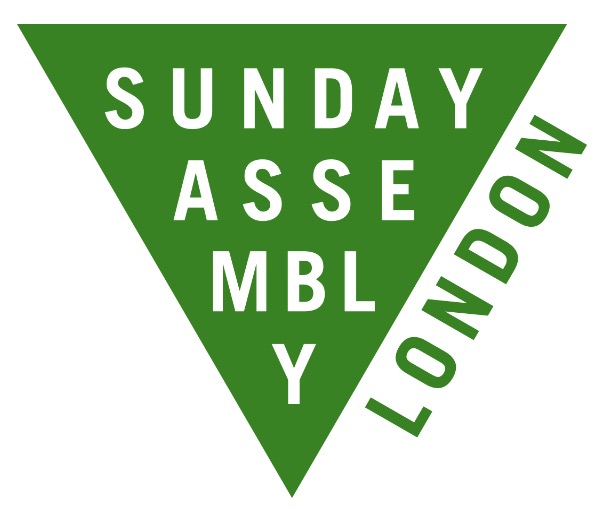Last week I was invited down to Brighton to give a talk at TEDx Brighton. It was the first time I’ve spoken at a TED event and it was an absolute blast. The videos of the talks take a while to be shared online so I thought I’d publish the transcript now.
The talk was about Lifefulness – a new way of looking at the idea behind Sunday Assembly. It fitted perfectly with the theme of TEDx Brighton 2017: Utopias. Without further ado….
An Introduction to Lifefulness
I love gathering people together. Something magical happens when humans congregate in a room. There’s a spark, a buzz, magic. Throughout my career I’ve connected with people, gathered them and tried to connect them to each other. Sometimes in small ways: for instance, I twice held the world record for the world’s longest hug. A mini extended, one-to-one connection.
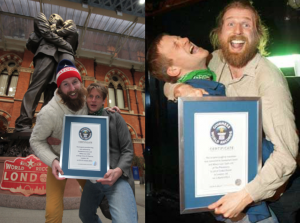
Sometimes in bigger ways: when I was a stand up comedian, I once played the Sydney Opera House having sold every ticket by hand.
I am now the co-founder and CEO of Sunday Assembly, a worldwide network of secular congregations that celebrate life, an organisation that is all about creating connections.
Today, I’m here to talk about idea that I think can connect even more people. Maybe it could connect the world. That idea is Lifefulness. What’s Lifefulness?
Lifefulness is to congregation as mindfulness is to meditation.
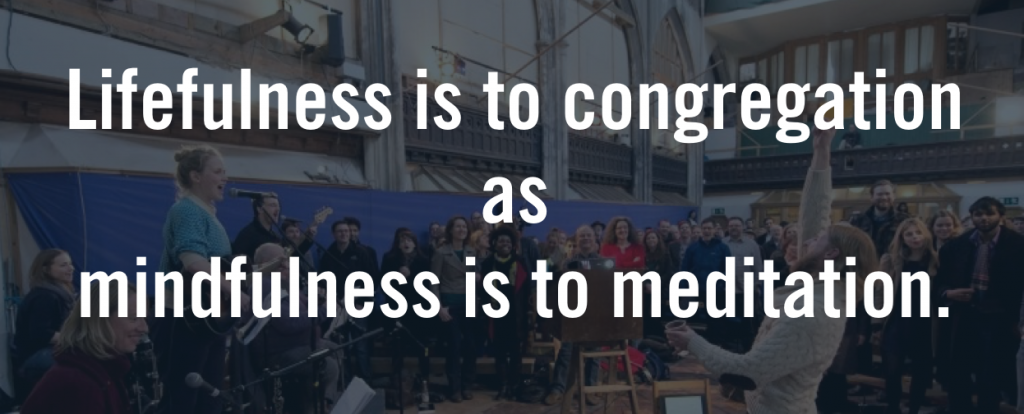
And my aim is that by the end of the talk, you’ll be able to understand that analogy perfectly.
My Story
In order to explain that sentence, I’ll tell you my story, I’ll take you to a church. Bowden Kirk is in Scotland, near where my grandparents lived. It’s where I was christened and was one of the churches I was taken to reluctantly as a child.

In 1991 I was there for the funeral of my mother, who died one day after my 10th birthday. Gillian Shelley was a phenomenal woman. Barrister, mother to five children by the age of 43, she had a heart as big a house and a laugh I wish I could remember better.
Over my teenage years, when I no longer believed in God, I had to grapple with death, life, love and grief. Instead of merely being sad, and by gosh it was sad, my feelings metamorphosed into a transcendental love, appreciation and gratitude for life itself. If you are an alive human – and don’t worry, you won’t be for long – you have won every lottery in the world.

About ten years ago I was leaving the Christmas carol service at Bowden Kirk and realised my attitude to it had changed. There was so much about it I loved – the singing, the sense of community, being surrounded by family, the stories – wouldn’t it be great if we could all come together and celebrate something we have in common? Life. Could we build a congregation around that?
On that cliffhanger, we’re going to leave my story, and jump into the story of John Kabat-Zinn, he’s the founder of modern medical mindfulness.
Let’s talk about John Kabat-Zinn
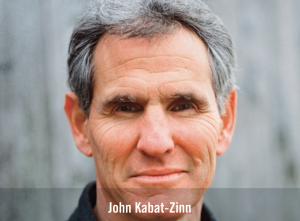
It’s 1979. JKZ, his hip hop name, was meditating on retreat.
“While sitting in my room one afternoon about Day 10 of the retreat, I had a ‘vision’ that lasted maybe 10 seconds…I saw in a flash not only a model that could be put in place, but also the long-term implications of what might happen if the basic idea was sound and could be implemented in one test environment—namely that it would spark new fields of scientific and clinical investigation, and would spread to hospitals and medical centres and clinics across the country and around the world.”
J-Kizza then adapted Buddhist vipasana meditation into the Mindfulness Based Stress Reduction Course. Over nearly 40 years it spread across society to the point there is now mindfulness for CEOs, Students, Mums, Dads and Dummies.
But enough about him. Back to me.
Back To Me
In 2011, I had the good fortune to meet the comedian Pippa Evans, and she’d had a similar idea to me. She had been avid church-goer until she stopped believing the god bit but still wanted the community, fellowship and purpose.

In 2013 Pippa Evans and I launched Sunday Assembly. We thought no one would come to the first one, and then there were almost 200 people. People wrote to us from all over the world, who wanted their own, and we recklessly said we would help. There are now about 65 all over the world with thousands participating every month.
People come together to sing songs, hear great talks, enjoy quiet reflection and build community. Around the gathering there are small groups, peer-to-peer support, social activities, and volunteering.
From Sunday Assembly to Lifefulness
Recently I realised that there was an idea behind Sunday Assembly that was far bigger than the organisation itself. I’ve named the idea Lifefulness: it’s the process of adapting the congregational community in a secular and inclusive way. Lifefulness is a way of sharing life together in community.
Before we move on I should give a very simple working definition of the congregational community. A typical congregation involves living in community with others, a regular celebratory gathering, a focus on personal growth, an intention to care for others and a commitment to sharing your values with the world.
With that out of the way, I’m going to share with you the four guiding principles of Lifefulness. An idea I believe has the possibility of having just as much, if not more, impact that mindfulness (not that it’s a competition).
1. Lifefulness is a community building methodology
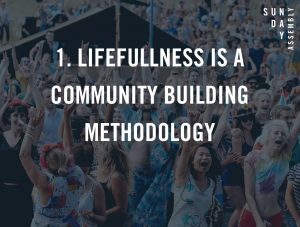
I want to make it crystal clear that this is not a religion (even though I have the right haircut to start one). In the same way that Mindfulness is not a religion, Lifefulness is not a religion.
John Kabat-Zinn saw a way of adapting a spiritual technology, Buddhist meditation, in a way that was secular, inclusive and evidence based.
Lifefulness is all about adapting a spiritual technology, the congregation, in a way that is secular, inclusive and evidence based.
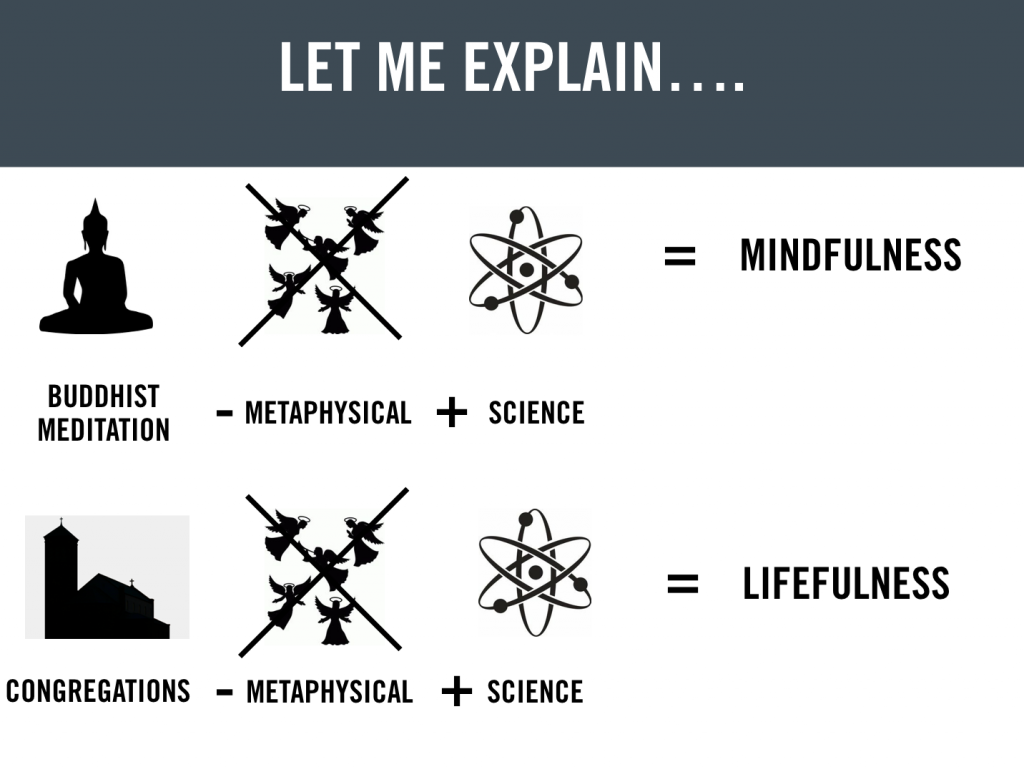
The work of Lifefulness is being done all over the world. Two Harvard researchers Casper Ter Kuile and Angie Thurston have shone a spotlight on many of these community builders. From Soul Cycle, the spiritual spinning class, to Alt-Div, the self-directed masters programme in Alternative Divinity, or the spiritually and socially diverse Sanctuaries in Washington DC. While in the UK there’s the excellent atheist minister Andy Pakula.
Now not every practitioner named follows all the principles of Lifefulness but they are all working to reimagine what congregational communities provided for centuries.
Why the name Lifefulness?
Because it sounds a little like mindfulness and I want to make that connection explicit. But mostly because it is about celebrating life, living life as fully as possible, supporting folks throughout their life – child, teen, adult to old age – and sharing the fullness of life – birth, marriages, divorces, illness and death.
And rebuilding social connection has never been more important in an age where community and social support are collapsing. When old systems of values and meaning are being undermined. Where there seems to be no positive hopeful narrative for the future, other than tech-utopias where we are either uploaded into the cloud or strapped into virtual reality with sex-robots for company.
There’s a lot of talk about the budget deficit and not enough about the deficit of hope, belonging, and meaning. One organisation used to speak all three of those needs: The congregational community.
Congregational Community as Evolved Social Structure
There’s something about that social structure that resonates with people. I know it resonated with me. The day I first did Sunday Assembly I knew this is what I wanted to do for the rest of my life. It drove me to put aside my comedy career and throw myself into building a movement. So in 2013 I travelled across the UK and the US to speak to potential organisers over there.
This reaction makes sense because I believe the congregational community is an evolved social structure that naturally fits the human condition. I could try to be clever and talk about extended phenotypes but I’ve found a simpler way of expressing it….
Hats are roughly the same shape the world over because they fit human heads.

Congregations are much the same shape the world over because they fit human lives.
The problem is that the congregational community no longer fits. In Britain church attendance is declining, 53% do not subscribe to any religion, and that goes up to 71% of 18-25 year olds.
Now the decline in congregational life is not the only cause of the crisis of isolation that we are experiencing – there’s technology, longer work hours, individualism and more – but it could be a big part of the answer.
An answer that is sorely need as isolation is hugely impacting society’s mental and physical health. Studies show that a lack of social connection is worse for your mortality than smoking fifteen cigarettes a day, drinking heavily or not exercising.
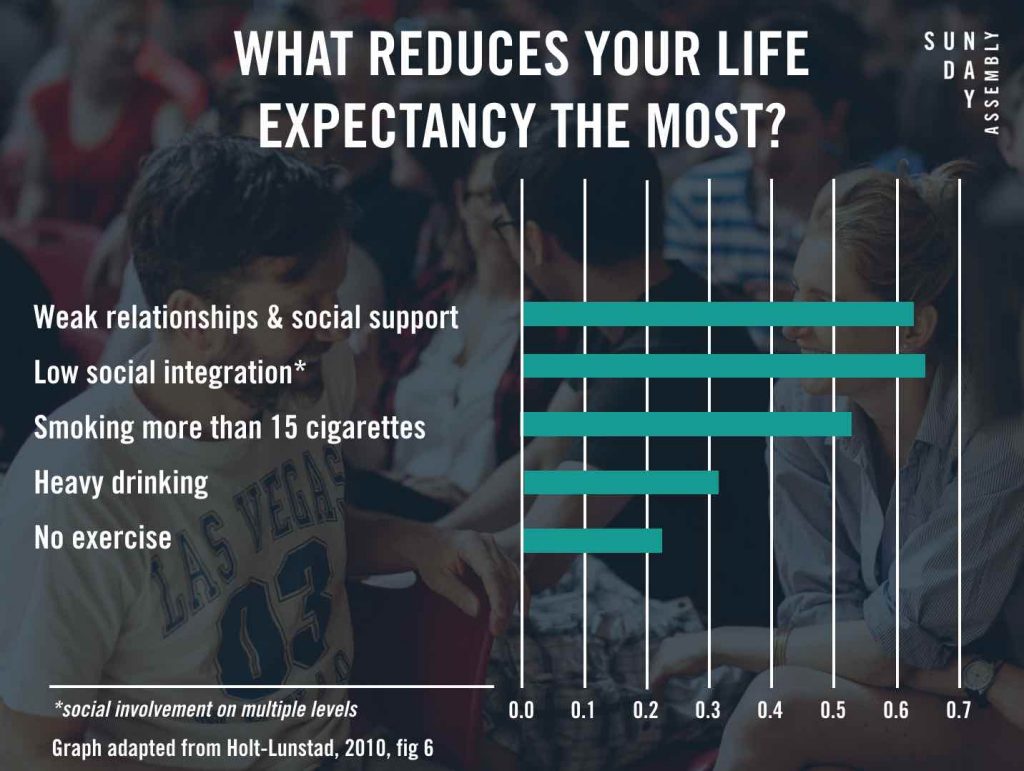
Loneliness is a silent killer, extinguishing millions of lives every year.
Luckily…
2. Lifefulness is inclusive and evidence based.
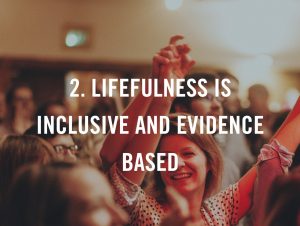
It is about making inclusive communities where people can meet in person. Where those that are different can become friends, even though they don’t agree on everything.
At Sunday Assembly one of our key principles is being radically inclusive. Though we’ve found it easier to express it as “We welcome all who welcome all”.
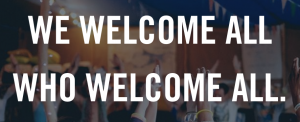
This is where the comparison with mindfulness is particularly potent. Mindfulness succeeded because the language allowed everyone – Jew, Muslim, atheist, agnostic, Hindu or anyone else – to be in the same room at the same time.
Imagine if we could build congregational communities like that?
The work of Jonathan Haidt and Juval Noah Harari posits that religion was a tool that allowed our ancestors to cooperate at a larger scale. Religions made it possible for humans who were not from the same tribe to be part of the same people. “The very ritual practices that the New Atheists dismiss as costly, inefficient and irrational turn out to be a solution to one of the hardest problems humans face: cooperation without kinship” was how Haidt put it.
Maybe Lifefulness could allow the entire planet to cooperate at the largest scale possible?
In order to be inclusive Lifefulness will have to be included in the world of public policy. John Kabat-Zinn was able to get mindfulness into hospitals, schools and businesses by creating an evidence base for it over forty years.
Sunday Assembly is on the start of that same journey. We carried out our first social impact survey in 2014, where we discovered that 20% of attendees experienced mental ill health and of those 76% experienced a greater sense of community, 78% a greater sense of life satisfaction and 85% felt happier from attending.

In 2016 93 Sunday Assembly participants were independently evaluated by Dr. Michael E. Price of Brunel University. Dr. Price created a scale combining the Short Warwick Edinburgh Mental-Wellbeing Scale, the De Jong Gierveld Loneliness Scale and the Office of National Statistics questions to show that attending Sunday Assembly led to a small, but statistically significant improvement in people’s wellbeing.
It’s The People
But, ultimately, Sunday Assembly is not a story of numbers but of people. There’s Jeff, whose partner died when he was in his late 70s and who comes to Sunday Assembly to be with a new family. Sajad, a political asylum seeker from Pakiston, who now not only has citizenship in the UK but a bunch of friends from very different backgrounds miles from Karachi.
But the story I want to speak about is Jennifer. Last year, Jennifer stood at the front of Sunday Assembly in Central London to talk about how it changed her life. Standing in front of 400 people she spoke about the crippling anxiety she suffered as a child. Scared of interacting with others she’d find solace in books. She’d read Harry Potter and imagine putting on the sorting hat. She’d love to be chosen for Gryffindor but couldn’t be, because they were all brave, and she wasn’t.
Since coming to Sunday Assembly when she was 17 she’s transformed. She is on the welcoming team, got involved in the production, went to social activities and is now studying Drama and English at a top London University. At the end of her talk she took out a scarf, a Gryfindor scarf, and said: “And now if I was in Harry Potter, I’d be brave enough to be in Gryfindor”.
And I cry every time I think about that moment.
There are, however, a few things that Lifefulness should do differently to mindfulness.
3. Lifefulness is ethical and organised (and might be spiritual)
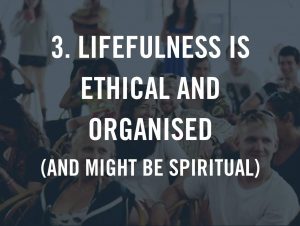
I want to make it clear that mindfulness isn’t unethical, disorganised and anti-spiritual. It’s rather that John Kabat-Zinn made the wise decision (at the time) to leave out huge swathes of Buddhist wisdom to just focus on the mindfulness practice. In his words: “I bent over backwards to structure it and find ways to speak about it that avoided as much as possible the risk of it being seen as Buddhist, new age, eastern mysticism or just plain flakey.”
What was lost in this edit? There’s a potent critique that McMindfulness is now a productivity tool for CEOs to help them unwind after a busy day of downsizing their workforce. As Loy and Purser put: “Even a person committing a premeditated and heinous crime can be exercising mindfulness, albeit wrong mindfulness.”
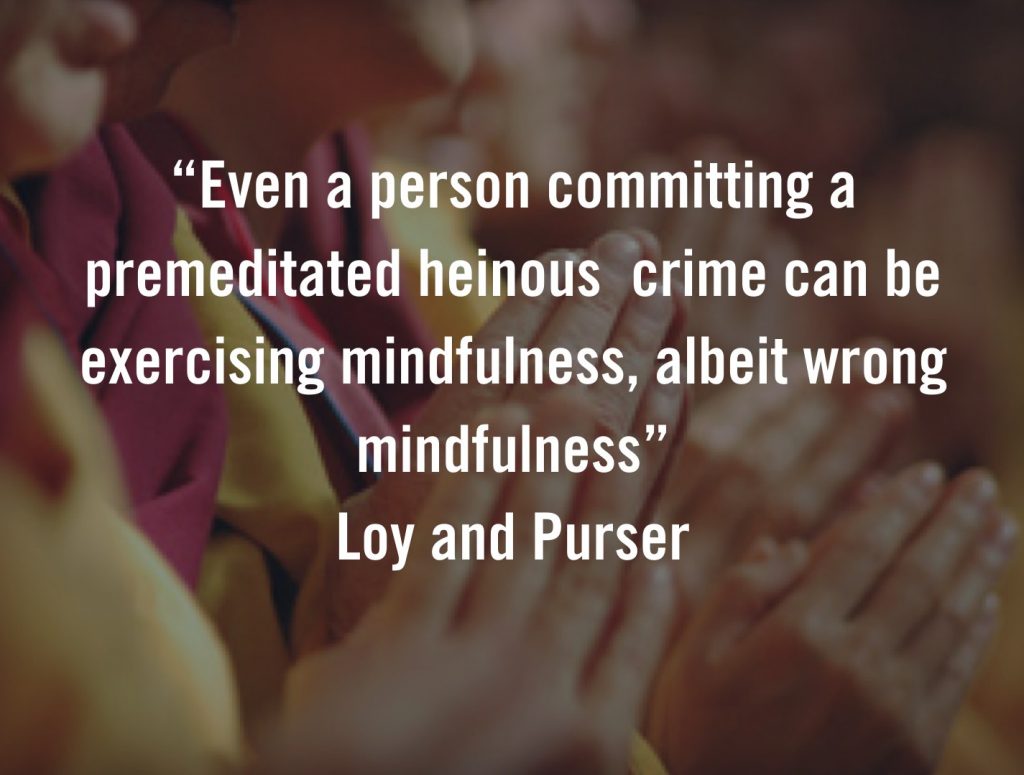
Lifefulness can learn from this and pull from all wisdom traditions with the goal of helping people lead a good life. Participants can be supported to make the ethical choices that improve their own lives, the community and the world.
Earlier I said it should be organised, which undoubtedly prompted some to think: “I love religion, but I’m not a fan of organised religion”.
Since starting this journey I’ve changed my mind on that: The organisation is the one of best parts of religion!
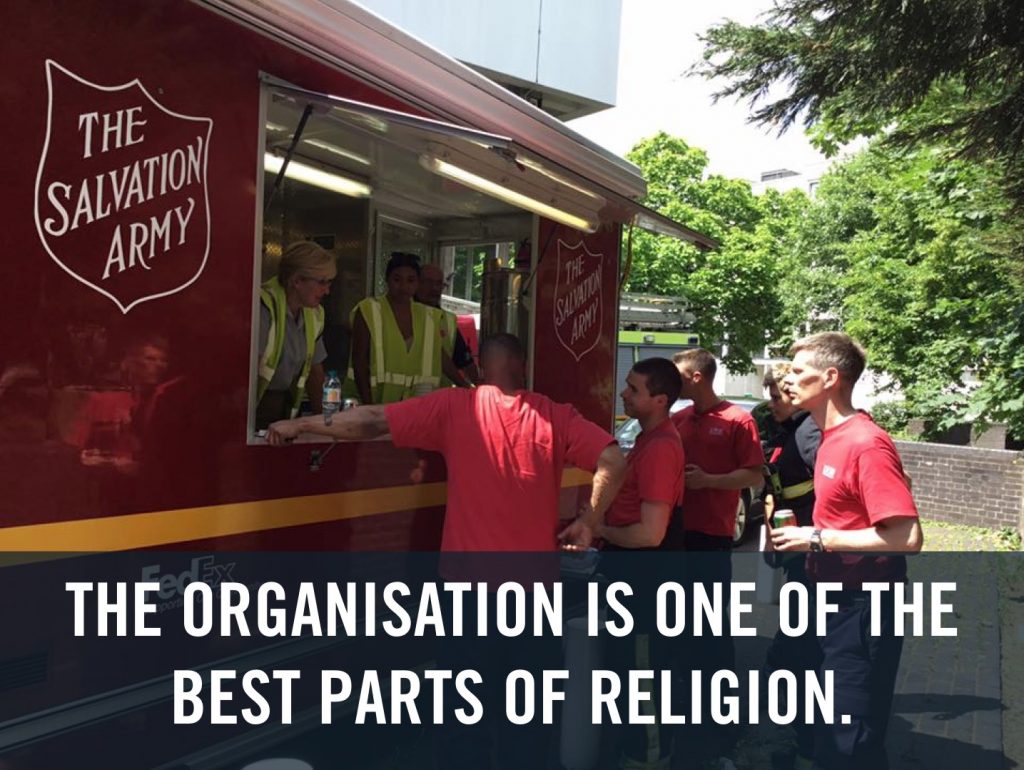
Fuzzy feelings don’t deliver food parcels, set up soup kitchens, host AA groups and visit the elderly. Organisations allow positive vibes to put on their boots, institutions allow philosophy to get its hand’s dirty.
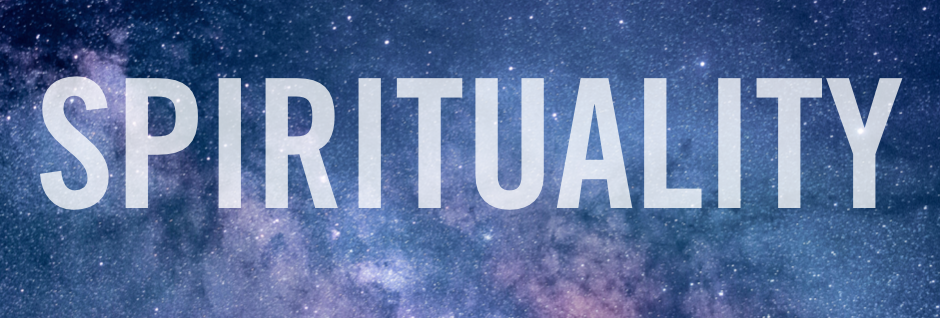
Lastly, I want to have a very brief chat about spirituality, and the word ‘spirituality’. Congregational community is, like Buddhist meditation, a spiritual technology. Many is the atheist, agnostic or don’t give a hoot-either-way-ist who think they can’t be spiritual if they don’t believe in the supernatural. I know that’s what I thought before getting into this world.
Today I understand that spirit is a human word that describes a human feeling that can be accessed by human practices.
I believe we need to reclaim this powerful, healing feeling but do it in a way that everyone – no matter what their existential beliefs – can practice in the same room at the same time. Maybe we need spirituality without the word ‘spirituality’.
4. There are in fact more guiding principles but let’s not put them all down here because this is a TED talk and not just a big list.

In summary: Lifefulness involves living in community with others, a regular celebratory gathering, a focus on personal growth, an intention to care for others and a commitment to sharing your values with the world. Lifefulness is a way of sharing life together in community.
Today I shared four guiding principles to make that happen.
- It’s a community building, methodology.
- It’s inclusive and evidence based.
- It’s ethical and organised (and may be spiritual).
- There are in fact more guiding principles but let’s not put them all down here because this is a TED talk and not just a big list.
The question is where might you see its impact in the next 5, 10, 20 or 30 years?
Where will Lifefulness have an impact?
Let’s begin by looking at Education. In the UK it is compulsory to have a daily act of collective worship in schools, but 75% of students are no longer religious. There’s huge scope to have meaningful and enjoyable gatherings with a philosophy that reflects the world pupils live in.
Businesses will now have access to a suite of tools that were previously exclusive to religion, expect leaders to make their companies into a communities.
In Health, GP surgeries could become community driven wellbeing centres where people help each other become the best person they can be.
Religion might also be affected. At the moment there are plenty of very liberal ministers in the Church of England who are more interested in building community and helping others than creating new converts. Maybe Lifefulness could help them connect with all, maybe this piece of social software could allow this most English of organisations to reconnect with the nation as it is today.
Maybe the biggest change will be in your life. Maybe you’ve heard something today that will drive you to build a community, to volunteer for a community or to support a community.
Having surveyed the work of these awesome innovators within the Sunday Assembly movement, and in the other experiments across the world, I want you to remember two things:
Firstly, that Lifefulness is to congregation as mindfulness is meditation.

And, secondly, well, this last one is more of a hope, more of a dream. The past few years have been scarred by fragmentation and polarisation. At Sunday Assembly we’ve gathered in our assemblies during these difficult times, we’ve spoken to other leaders who are doing this work, and together understood that building these communities is the important, deep, culture changing, society defining labour that needs to be done.
And I take comfort in the fact that the speed with which things have changed for the chaotic, means that they can change for the better just as fast. I fervently hope, with all my heart – and this is my utopian dream – that we will be able to create that world where everyone lives life as fully as possible.
[Rapturous applause etc]
I hope that you are as excited about this idea as we are. If you want to make this change happen in the world you can donate to Sunday Assembly here. Thanks so much for your generosity.
